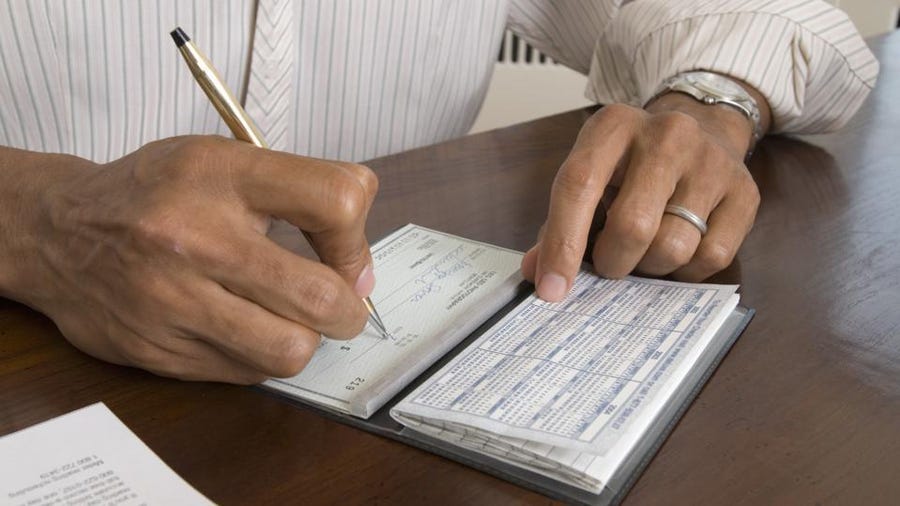When a check you wrote for payment is returned by your bank unpaid, a credit card lender or other company will charge you a returned check fee. This usually occurs when your account does not have enough funds to cover the payment.
Returned Check Fee Definition and Example
Lenders and other recipients of returned checks have the right to recover some of the costs associated with attempting to deposit them. This is something that most states' laws allow for. Return check fees typically cover these costs, such as service fees levied by the lenders' banks. For a variety of reasons, your bank may return your payment to your credit card lender as unpaid. Insufficient funds, account closure, or check cancellation are all possible reasons for your payment being returned. If you enter your payment information incorrectly when paying online or by phone, the payment will not be processed correctly, and you may be charged a returned check fee as a result.How Do Fees For Returned Checks Work?
If you make good on the payment, your returned check will not be reported to the credit bureaus, so your credit score will not be affected. If 30 days have passed since your due date and you haven't made the payment, it will appear on your credit report and may have an impact on your credit score. If the lender allows you to keep your credit card account open, you may be charged a higher "penalty" interest rate. If you haven't made a payment in the last six months or have had another returned check, a returned check may result in a penalty rate, which is the highest interest rate charged on a credit card. If you don't make the payment, the lender may send it to a collection agency or take you to small claims court, which will appear on your credit report and have an impact on your credit score.Fees for Returned Checks and How to Avoid Them
Make sure you have sufficient funds in your checking account before sending the payment to avoid having to pay a returned check fee. Make sure your chequebook is balanced to account for any transactions that may be debited from your account in the coming days. Note: If you try to "float" checks or pay bills in a specific order because you can't afford to pay everything at once, you risk incurring a returned check fee. After you've mailed your credit card payment, keep an eye on your checking account to make sure your balance is sufficient to cover the payment when it arrives. When paying online via the credit card issuer's website, double-check that you've entered all information correctly, even if that means pulling out a physical check to confirm your checking account information.What am I obligated to pay?
If you write a check that is returned due to insufficient funds, your credit card company may charge you up to $30. For example, American Express charges $38. To learn the precise fee and penalties for returned payments, check the terms of your credit card. Keep in mind that your bank will almost certainly charge you an overdraft or nonsufficient funds (NSF) fee, which could add another $25 to $35 to the total cost of the returned check. If the incident was one-time and your account history has always been positive, you might be able to get the fee waived or reversed. Call the customer service number listed on the back of your credit card, explain the circumstance, and ask for the fee to be waived as a courtesy.Important Points to Remember
- A returned check fee is a monetary penalty imposed by a lender when your bank account's balance is insufficient to cover a check written for payment on the account.
- If you make an online or telephone payment mistake, such as transposing your bank account numbers, you may be charged a returned check fee.
- The cost of a returned check can be as much as $35.
- A lender may raise the interest rate on a credit card account if multiple checks are returned for nonsufficient funds.


